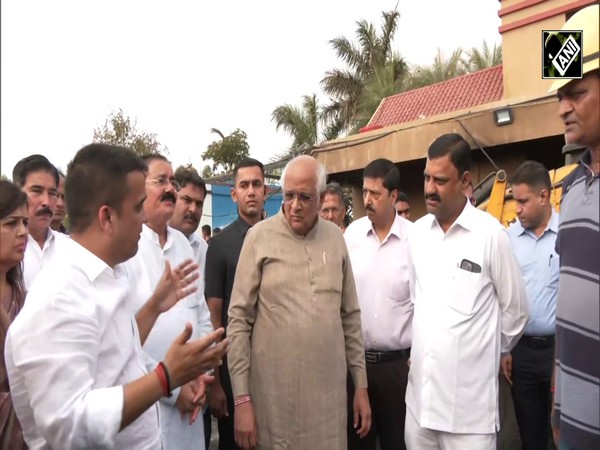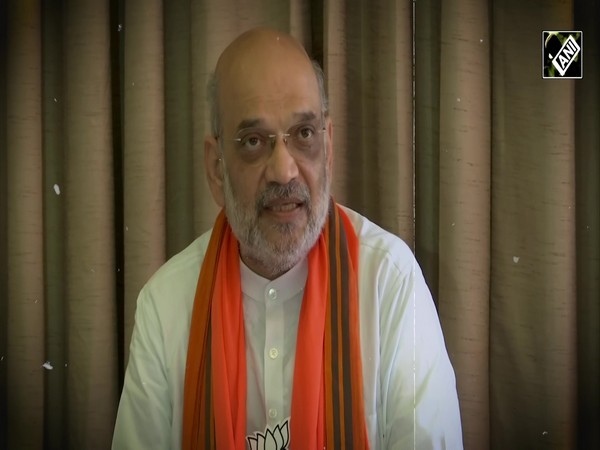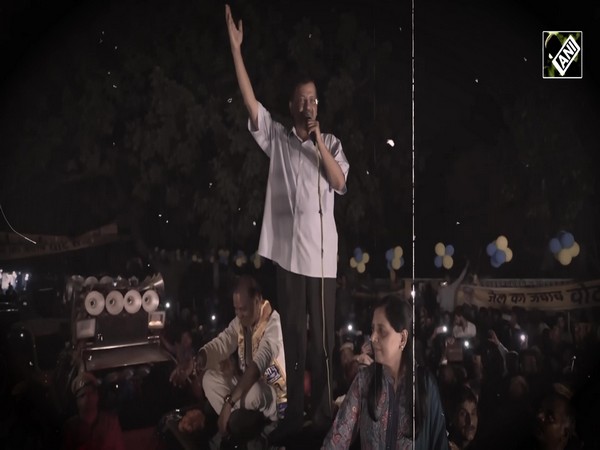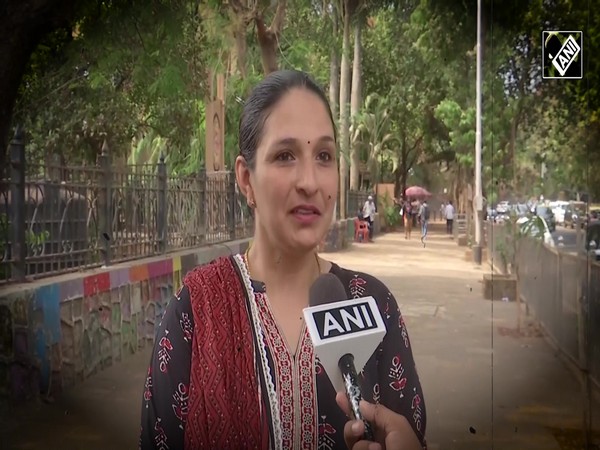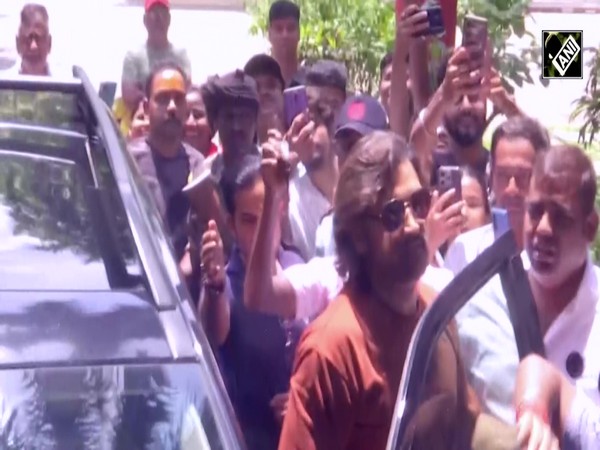Raja Dasharath Samadhi Sthal in Ayodhya undergoes transformation under Yogi govt
Jan 11, 2024

Ayodhya (Uttar Pradesh) [India], January 11 : Situated approximately 15 kilometers away from the iconic Ram Janmabhoomi, Raja Dasharath Samadhi Sthal in Ayodhya has undergone a remarkable transformation under the administration of the Yogi Adityanath government, according to a statement issued by the Chief Minister's office.
In the first phase, the government expedited the restoration process of this historically significant site, which had long suffered neglect during previous governments.
In the first phase, the government focused on strengthening and enhancing the aesthetic appeal of the Samadhi Sthal. For the second phase, the Yogi government is actively preparing a development plan for the area.
In 'Ramnagari', where every aspect related to Lord Ram holds profound significance, the Samadhi Sthal of his father, Raja Dashrath, had long grappled with neglect. However, thanks to the determined resolve of the Yogi government, this site has undergone a revitalization process.
The Padma Purana also describes the spiritual significance of the Raja Dasharath Samadhi Sthal, stating that anyone who visits this place and recites or remembers the 'Shani Stotra' composed by Raja Dasharath is liberated from the troubles caused by Saturn (Shani).
It is also asserted that individuals who visit this sacred place, witness the distinctive idol of Shani Dev, and recite the Shani Stotra composed by King Dasharath, are believed to receive the auspicious gaze and blessings of Shani throughout their lives.
According to the successor of the Samadhi Sthal, Sandeep Das Maharaj, 'charan paduka' of all four brothers, Pind Vedi, Guru Vashishtha's footprints, and ancient historical weapons are present here that have remarkably remained free from rust to this day. The statues of King Dasharath, Bharat, Shatrughna, and Guru Vashishtha are also present at this sacred place.
Elaborating on the historical significance, Sandeep Das Maharaj shared that following the passing of King Dasharath, Bharat sought guidance on the most sacred location for Dasharatha Ji's final rites. It was then decided, under the leadership of Guru Vashishtha, that this location would be chosen for the cremation ceremony.
As part of the Pran-Pratishtha programme in Ayodhya, the Yogi government will also organise various events at this sacred site. Cultural programmes, Ramlila, Bhajan-kirtan, and programs by eminent artists are planned. In addition, there will be rituals, ceremonies, and cultural activities to showcase the heritage of the newly revitalised Ayodhya.
Government officials from the Culture and Tourism Department are actively preparing for these events to aware the general public about the historical and cultural significance of the Navya Ayodhya.
Connectivity will increase from Navya Ayodhya: There is a plan to widen the road by 24 metres to reach the Raja Dashrath Samadhi Sthal. It will be connected to Navya Ayodhya. Viewing the importance of Raja Dashrath Samadhi Sthal, the temple has been beautified here in the first phase by the Yogi government.
The campus has been expanded, beautified, and strengthened. The Yogi government has also given this campus a majestic and divine appearance.
Strengthening of boundary wall: In the Yogi government, the Raja Dashrath Samadhi Sthal has undergone fortification with the construction of a strengthened boundary wall. Along with its vibrant colors, the wall has been elevated for enhanced security measures.
Renovation of Satsang Bhavan: The renovation of the Satsang Bhavan has been carried out, transforming it into a kirtan-bhajan venue at the Samadhi Sthal. Approximately 200 to 250 devotees can now immerse themselves in the ocean of devotional songs and hymns together at this place.
To transform Ayodhya into a solar city, the Yogi government has implemented the installation of solar panels for electricity generation. This initiative has played a significant role in decreasing reliance on traditional energy sources.










